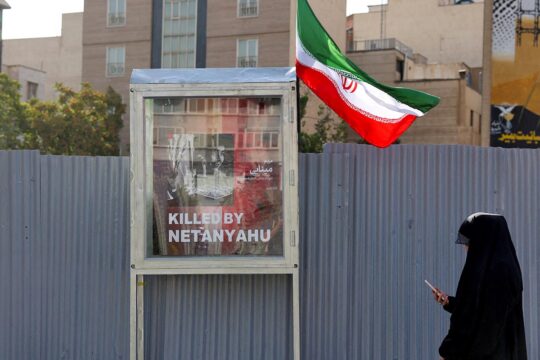Jadranko Prlic, who hears an appeals verdict over his war crimes conviction this week, is an academic who became leader of a self-proclaimed statelet for Croats during Bosnia's bitter 1990s conflict.
The one-time prime minister of the "Croatian Republic of Herceg-Bosna", Prlic was sentenced to 25 years in jail in 2013 by UN judges at The Hague on charges of aiding and abetting the murder, deportation and harsh detention of Muslims.
On Wednesday, the 58-year-old and five other wartime Bosnian Croat leaders will hear the verdict on their appeal case -- the last judgement to be handed down by the International Criminal Tribunal for the former Yugoslavia (ICTY).
The bald and bespectacled Prlic, who vehemently denied the charges, told the court in March that his trial represented "a dark side of international justice".
Along with Croatian nationalist leader Franjo Tudjman, Prlic took part in a "joint criminal enterprise" to drive out Muslims from parts of Bosnia with the aim of allying the statelet with Croatia, the court said in its original ruling.
Bosnian Croats and Muslims, allies against Serbs during most of the war in ethnically diverse Bosnia, turned against each other in 1993, when the Croats' "republic" was declared.
The statelet, backed by Tudjman's regime, was formally dismantled in 1996 as part of the peace deal that ended the 1992-1995 war, which left 100,000 people dead.
Sead Avdic, a Bosnian Muslim politician, in 2002 described Prlic as "lucid, thoughtful, hypocritical".
- 'Not a great extremist' -
The "president" of Herceg-Bosna, Mate Boban, died in 1997 and Tudjman in 1999, leaving Prlic the highest-ranking official to face judgement for the crimes.
"Who was in the most dangerous position during the war? Me. Because I am not a great extremist," Prlic told AFP in 1996.
Prlic was born in the eastern Croatian town of Djakovo in 1959 and joined the League of Communists, Yugoslavia's ruling party, in the 1970s.
He obtained a doctorate in Sarajevo in 1987 -- one of the youngest people in the federation to do so.
The lecturer served as mayor of Mostar, the southern Bosnian city whose bridge would later be destroyed, becoming a symbol of the war.
Although he became a visiting professor at universities in the United States, Britain, Italy, he turned down a full-time job in Washington as a young and promising economist.
Prlic later explained that the "quality of life" in Mostar was "better than it could be anywhere in the US".
He also served as deputy prime minister in Bosnia's last communist government.
After the clashes between Muslims and Croats ended, Prlic held various high-level posts in the newly-formed Croat-Muslim entity in Bosnia.
- 'Insecure' Croats -
After the war, Prlic went on to become Bosnia's foreign minister from 1996 to 2001 and tried to present himself as a moderate, founding an unsuccessful pro-European party.
The ICTY charged him and his co-defendants in 2004. They surrendered and their trial opened two years later.
Prlic, who according to the charges had the authority to close Herceg-Bosna's prisons and concentration camps, argued that the statelet's only aim was to ensure Croats' rights in a "new Bosnia".
"Steps undertaken by the Muslim side resulted in the insecurity of Croats in Bosnia," he told the tribunal.
Prlic published several books on economics and politics and in prison wrote a 2,000-page tome on Herceg-Bosna.
"I think I had a rich life... I would probably do some things differently, but in principle I believe I was always where I had to be," he said in 2002.


